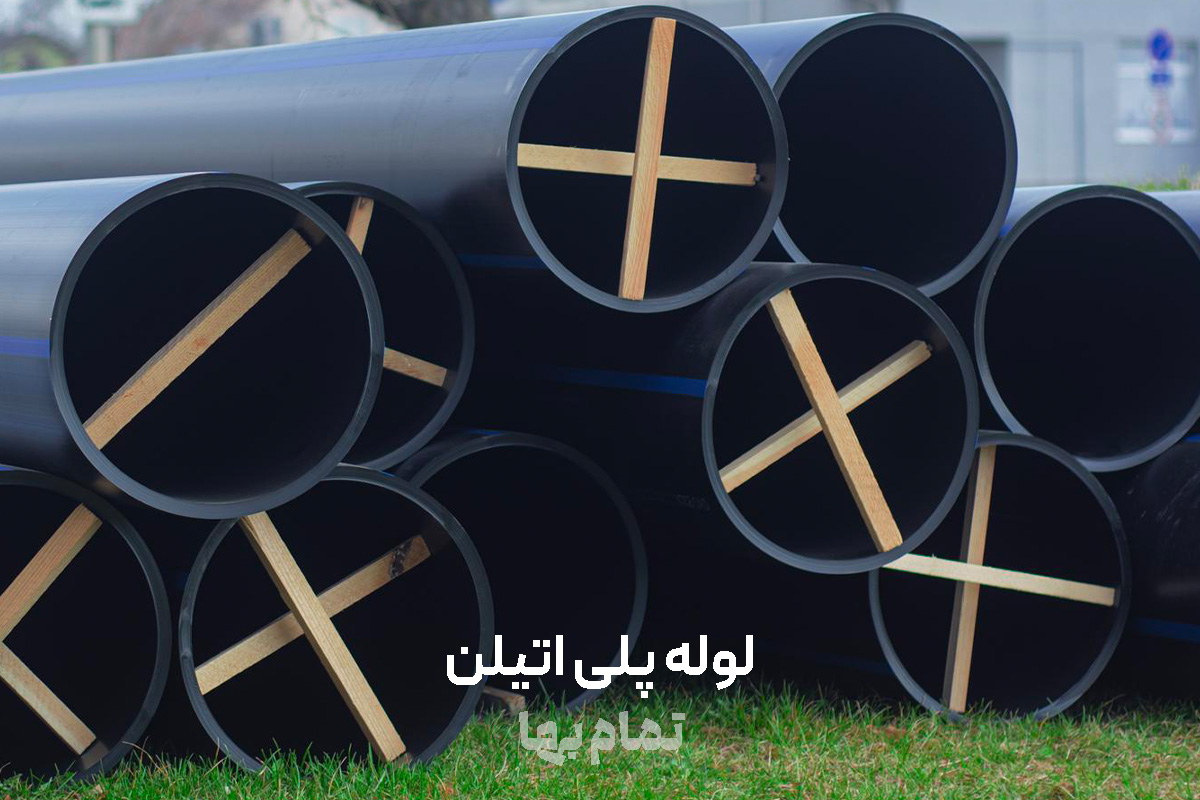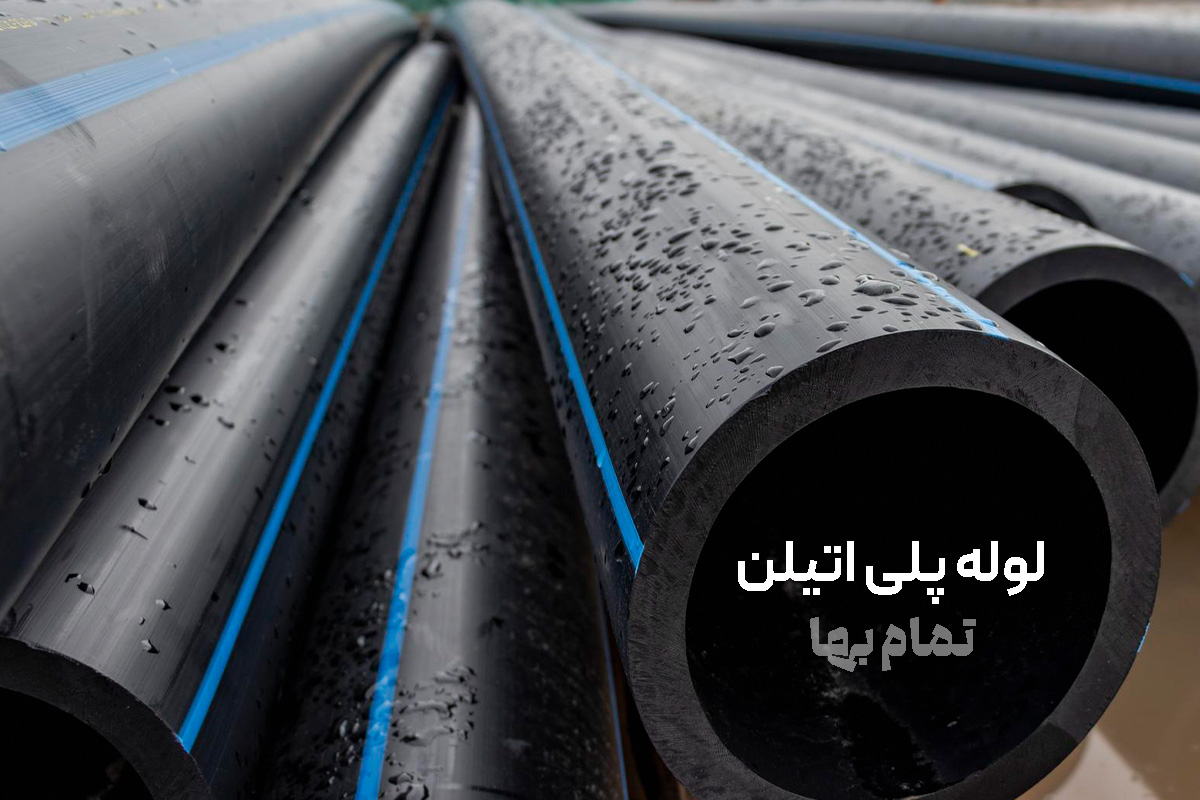Polyethylene (PE) pipes, as the new-generation replacement for metallic and concrete lines, have evolved over the past decades from pilot use to the core infrastructure of urban water supply, gas distribution, and sewer networks. This shift is the result of combining the unique properties of ethylene-based polymers, the development of bimodal resins, and the use of precision extrusion lines with vacuum calibration—so that today, high pressures, sub-zero temperatures, and aggressive chemical environments also fall within the safe operating range of these pipes.
Physical and Chemical Properties of Polyethylene
Density and crystallinity: 0.91–0.965 g/cm³, commonly referred to as LDPE, MDPE, and HDPE, respectively. Higher crystallinity increases tensile strength and elastic modulus while reducing permeability.
Chemical resistance: Stable against weak mineral acids, bases, salts, and microorganisms; may swell under prolonged contact with chlorinated or aromatic hydrocarbons.
Thermoplastic flexibility: An elastic modulus of 600–1400 MPa delays brittle failure even at sub-zero temperatures and allows a permissible bending radius down to 20 times the outside diameter.
Structural Classification
Single-wall (Smooth Wall): Nominal diameters 16–1600 mm for water, gas, and mineral slurry.
Double-wall corrugated: Ribbed outer wall with smooth inner bore; ideal for gravity sewer and drainage networks.
Spiral and ring-lock: Spiral-wound production in sizes >2 m for manholes, tanks, and marine pipelines.
Multilayer (Composite): HDPE / Aluminum / HDPE for high-temperature duties or where an oxygen barrier is required.
Key Standards and Tests
ISO 4427-2 / INSO 14427-2: Pressurized potable water; design factor C = 1.25.
ISO 4437-2 / INSO 7607: Gas distribution; slow crack growth (SCG) test 100 h at 80 °C and 4 MPa.
DIN 8074|8075: Nominal dimensions and tolerances for the European market.
Hydrostatic tests: 100 h at 20 °C with 1.9 × PN and 165 h at 80 °C with 1.3 × PN are mandatory.
Step-by-Step Production Process
HDPE granules are melted in a single-screw extruder with L/D ≈ 33; the melt is forced through an annular die at ~200 bar and immediately enters a vacuum sizing sleeve to stabilize the OD. Two-stage cooling baths (18–22 °C) control freeze-in stresses. Finally, an inkjet prints traceability code, SDR, date, and plant name at 1-m intervals; then the haul-off and cutter deliver 6, 9, 12-m lengths or 100-m coils according to standard weight tables.
Jointing Methods
Butt fusion: Heater plate at 200–220 °C; fusion pressure ≈ 0.15 × SDR (bar).
Electrofusion: Aluminum-resin couplers wound with copper wire; barcode microchip control.
Flange with steel backing ring: For inspectable points like pump stations.
Compression fittings: Sizes ≤110 mm in agricultural and drip networks.
Comparison Table of PE80 and PE100 Resins
| Property | PE80 | PE100 | Practical implication |
|---|---|---|---|
| Minimum Required Strength (MRS) | 8 MPa | 10 MPa | Thinner walls at equal pressure |
| Density (g/cm³) | 0.942 | 0.955 | Higher ring stiffness |
| Max. working pressure for water (20 °C) | 8 bar at SDR11 | 10 bar at SDR11 | Up to ~15% weight saving |
| Slow crack growth resistance | ≥200 h at 80 °C | ≥1000 h at 80 °C | Longer service life under sustained stress |
SDR and Nominal Pressure for PE100 Pipe (Water 20 °C)
| SDR | PN (bar) | Relative wall (e/D) |
|---|---|---|
| 41 | 4 | 0.024 |
| 33 | 6 | 0.030 |
| 26 | 8 | 0.038 |
| 21 | 10 | 0.048 |
| 17 | 12.5 | 0.060 |
| 13.6 | 16 | 0.074 |
| 11 | 20 | 0.091 |
Industrial and Urban Applications
Potable water transmission: Trunk mains, house connections, rural water projects; jacket installation within precast channels.
Natural gas and low-pressure LPG: Thanks to ductility, impact resistance, and tracer wires.
Pressurized and gravity sewage: Corrugated pipes SN4 and SN8 with EPDM sealing couplers to limit root ingress.
Mineral slurry and pulp: Low abrasion; floatability for coastal dredging projects.
Drip, sprinkler, and center-pivot irrigation: LDPE coils and HDPE laterals to minimize leakage from multiple joints.
Fiber-optic and power cable protection: 40–160 mm, orange color, suitable for long micro-duct runs.
Hydraulic and Mechanical Design
Roughness k ≈ 0.007 mm yields Hazen–Williams C ≈ 150 at 20 °C; thus diameter selection is based on lower head loss than steel pipe (C ≈ 120). For burial, permissible bending radius (R_min) is ~25 × D at 20 °C, increasing to ~35 × D at 5 °C. Ring design per ATV-A 127 shows that a 30-cm granular bedding layer with E ≈ 30 MPa suffices up to 630-mm diameter.

Transport, Storage, and Environmental Stability
Coils ≤110 mm up to 300 m are carried on wooden reels without direct contact with sharp stones. Straight lengths are stacked on plastic pads with 1.5-m spacing so ovality stays <3% of diameter. Adding 2–2.5 wt% carbon black provides >20 years UV resistance outdoors. At end-of-life, pipes are milled and recycled as asphalt filler, cable bedding, or non-critical injection parts.
Price Determinants
Resin grade: PE100 granules cost about 8–12% more than PE80.
Unit weight: Weight = π × (D_out – e) × e × 0.955 (kg/m).
SDR: Every +2 in SDR reduces weight by ~18%.
FX rate and logistics: Largest share for out-of-city projects.
Buying Guide and Authenticity Check
Embossed, indelible marks must show the standard mark, tracking code, date, and nominal diameter.
A cross-section cut should show a uniform ring without voids or burnt specks.
MFI of 0.20–0.35 g/10 min (190 °C, 5 kg) gives the best balance of processability and mechanics.
For critical lines, request SCG and ESCR reports from an accredited laboratory.
Technology Outlook
PE112 (MRS = 11.2 MPa) and PE125 in pilot use in Europe enable up to ~25% wall-thickness reduction versus PE100. Anti-chlorine barrier layers and RFID tagging are being commercialized for online asset control and leak management.
Tamam Baha, as a leading supplier of polyethylene pipes and fittings across the Middle East and Europe, provides a complete range from 16 to 1200 mm per the above standards and offers on-site welding (butt/electrofusion) and hydrostatic testing—streamlining procurement through commissioning for owners and contractors.

